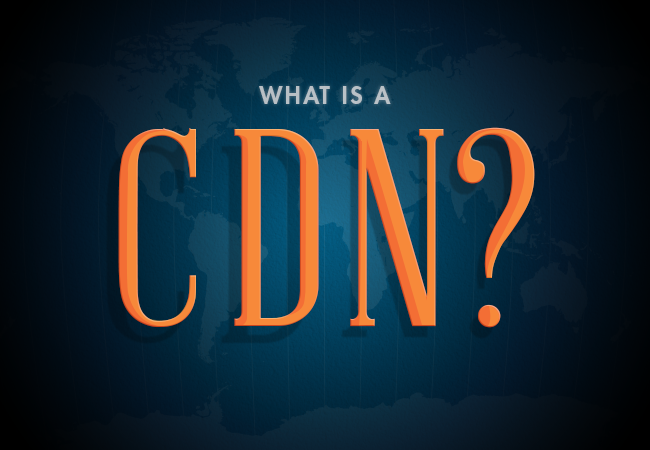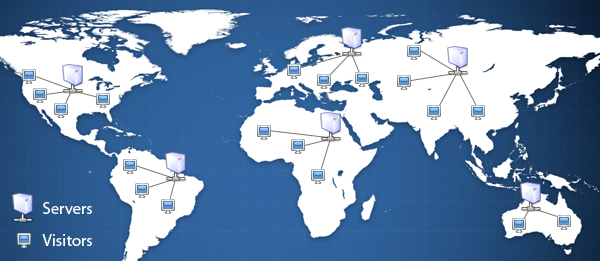What & Why of CDNs for WordPress Sites
Content Delivery Network or CDN, in short, is basically a topic that confuses many beginners. And why should it not? It can be a complicated topic to understand. Partly because a clear and beginner-friendly guide has not been there. People who’re looking to understand CDN are usually those looking to speed up their websites. We have written several tutorials on making your WordPress website perform faster. Here are a few of them:
- 10 Steps to Get 95+ Score on Google PageSpeed Insights
- How to Speed Up WordPress with a Plugin
- Top 3 Methods to Enable gZip Compression
- Definitive Guide to Improve Page Load Time
- Speed Up Websites with Fastest PHP Caching with PHPFastCache
- How to Defer JavaScript Files in WordPress
If you got any questions regarding speeding up WordPress, feel free to comment. Tutorials linked above should help you improve your Google PageSpeed score for sure. Now.. to talk about CDN, first of all:
What is a CDN?
CDN is short for Content Delivery Network. It plays a good role in speeding up WordPress website. Content Delivery Network is a network of geographically spread servers.
On such a network, servers cache and store assets of a website like stylesheets, scripts and images. CDN delivers these cached assets to users accessing the website. But the servers work geographically. Like if your website’s content is hosted on Server O (origin server), which is supposedly located in Los Angeles. Then a person visiting/requesting your site from Middle East will have to wait longer till requested assets are delivered from LA to Middle East. Greater the distance between user and server, greater will be the load time. The two are directly proportional to each other.

This is where CDN comes in. It is a network of many servers, all hosting a cached version of your site assets. They are geographically dispersed. Meaning one will be located in Los Angeles, others in India, Indonesia, Australia, Moscow, Tehran, etc. Origin server is where your site is originally hosted. This is where you upload files. Other servers copy site’s contents from origin server to themselves. And then display them accordingly the location of user requesting page or website.
If a user is requesting page/website from India, his request will be redirected to the server located closest to him. User’s proximity to server has an impact on load time. A CDN helps you spread your content geographically around the globe. Thus closer the CDN server to user requesting, faster the content will be delivered.
Do you need a CDN?
Speed or performance –
It’s clear from the explanation above that a CDN improves the site load time significantly. The better the performance and speed, better will be the user experience, right? User experience, if you’re selling something on your site, is of paramount importance, agree? As per Akamai research, 1 second delay in page load can cause 7% reductions in conversions. If you care about UX and you’ve a around-the-globe audience, then CDN is no-brainer, I’ll say.
Less chances of crash
Since the load of traffic is not on one server. Burden of huge traffic is shared across a network of servers (CDN), the chances your server crashing due to resource usage are far less. There are times when site traffic grows unusually wildly, right? Shared web hosting is typically vulnerable to server crashes. So if you got a CDN, you’re more likely to stay afloat despite low resource usage limit or shared hosting.
Better SEO
Speed of a website plays a crucial role in the SEO of a site. Google, itself has declared site performance as a ranking factor and has also incorporated many changes in its search engine that emphasize the importance of website. It may also be the reason for the existence of Google PageSpeed Insights and guides like Optimizing Performance. With CDN comes better speed, resulting in better search rankings and eventually organic traffic, right? Win-win.
Around-the-globe audience?
If your site’s traffic comes from around the globe, then you must consider CDN because it will help you a lot. I think, this should be the first question one should ask before even thinking about CDN; whether you have around-the-globe audience. Because if your site receives traffic solely from America and that’s where your origin server is located as well, then what’s the use of having servers in Moscow, Shanghai and Kuala Lampur? None, right? So ask this question first.

Frequently Asked Questions
Following is a list of questions which are unclear to most users are require frequent answers. So I made a list of those frequently asked questions. Here they are:
Will I still need web hosting if I have a CDN?
Yes, you will. CDN and web hosting are two different things. Similar, but not same. CDN works on top of web hosting. Though spending on CDN can seem like an expensive to-do thing, but you know what, it actually saves you more money than it costs. How? Well, by giving your origin server less burden to take care of, CDN saves you money on Ram or upgraded hosting. With CDN, you will still need hosting, because CDN only serves site assets (css, js and image files). It doesn’t keep core files, have databases to care about.
What is the difference between web hosting and CDN?
Web hosting hosts your core files, have databases to control the flow of content. CDN? It doesn’t any of that stuff. CDN is just a widely and geographically dispersed network of servers, serving stylesheets, scripts and images.
How do I know where my visitors are coming from?
So.. the main question one should ask when considering a CDN is: Do I have a global audience? So how do you know whether your site has visitors not only from one country or region, but rather from many different countries and that too at a fair distance from each other.
